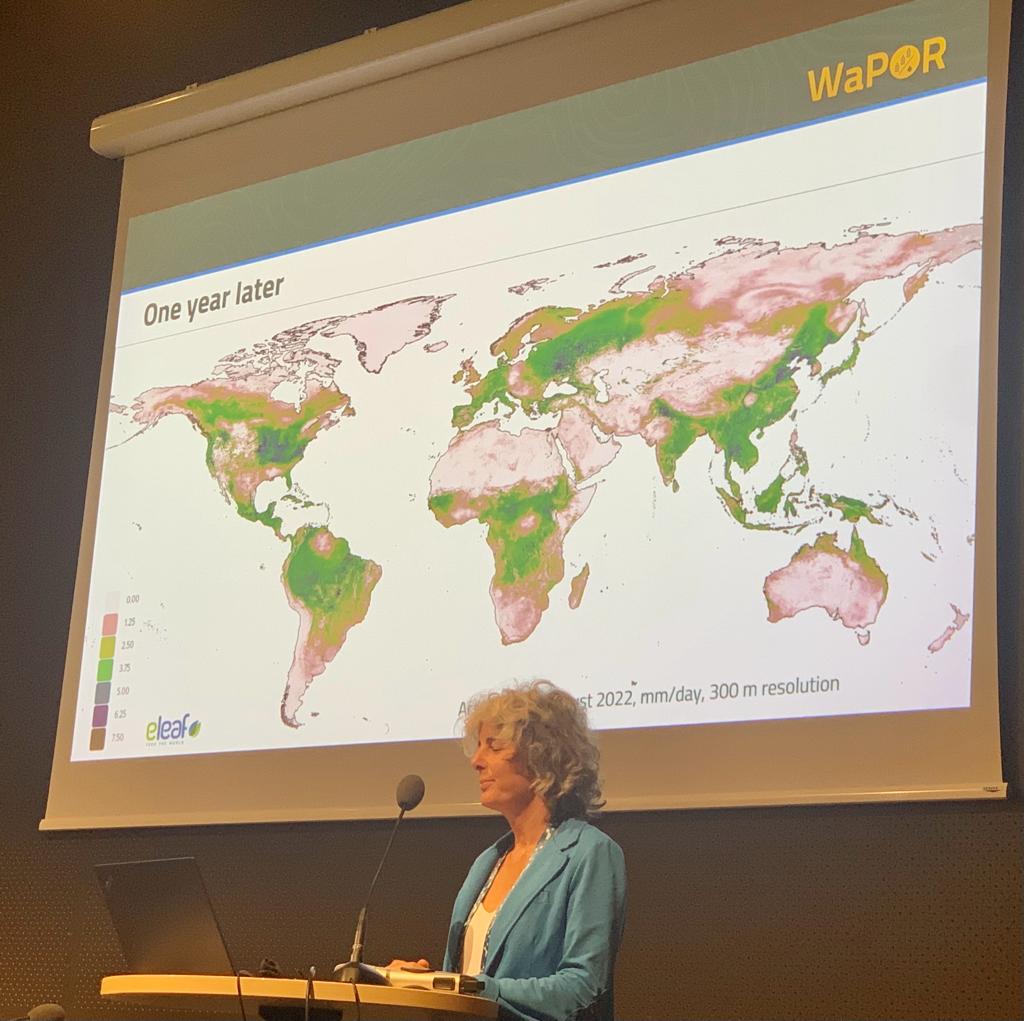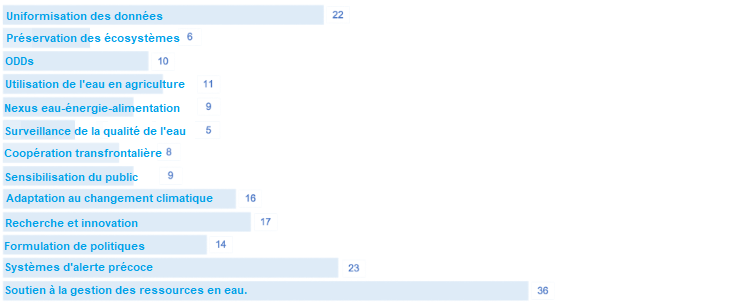WaPOR at the 2023 World Water Week

Patricia Mejias-Moreno, AQUASTAT coordinator, spoke in her presentation about the Water and Climate Coalition plan to create a global water data portal that will be hosted in the same powerful platform as the AQUASTAT dissemination system and the new WaPOR portal (the FAO Hand in Hand platform), that will hopefully help gather water data in one place facilitating its use for improved water management. As you can see from the the survey answers below, at the end of the article, there are a myriad of sources that offer data on water all at different resolutions, coverages, formats, etc., which creates a barrier to their effective use.
The Stockholm World Water Week, an annual event that brings together global experts, policymakers, and practitioners to address pressing water-related challenges, concluded its proceedings on Thursday 24 August.
This year's conference, held under the theme "Seeds of Change: Innovative Solutions for a Water-Wise World," provided a platform for discussions and presentations on strategies to ensure the sustainable use and management of water resources. As an innovative resource at the intersection of water and agriculture, WaPOR was well placed within the theme of this conference and was presented in two distinct sessions of the water week by the project's technical officer, Livia Peiser.
Session 1
"Water Productivity to Improve Water Sustainability in Agricultural Production"
This session was convened by the Robert B. Daugherty Water for Food Global Institute at the University of Nebraska and the University of Alabama. The discussion centered around the use of local, regional, and global scale data such as crop yield, applied irrigation water, soil water content, crop canopy parameters, as well as the use of crop modeling and remote sensing, for estimating spatial and temporal variation of crop water productivity. WaPOR, being an open-access database that uses remote-sensing data to monitor land and water productivity, contributed meaningfully to the conversation on how to make agriculture more sustainable in regards to its water footprint.
Session 2
"Innovative Water Data Solutions for Water and Food Security,"
This session was co-convened by the FAO's Land and Water division in collaboration with the World Meteorological Organization (WMO). The presenters shared their experience at two different scales, the global and the national, to explore the benefits of integrating geospatial data in water statistics while also showing the barriers and main challenges for the uptake of geospatial tools.
During last year's Water Week session centered on WaPOR, the Government of the Netherlands, represented by Ms. Kitty van der Heijden, the Director General of International Cooperation, announced the expansion of WaPOR thanks to supplementary funds. This expansion is:
- one of the database from a coverage of the Africa and the Near East to a global coverage, and
- one of the project activities to two partner countries: Colombia and Pakistan.
During this year's session, exactly one year later, Livia P. announced that the first global layers of the new database have been delivered, after months of work, feedback, quality control, adjustments (image below) and that the data is now in production for a release at the October Rome Water Dialogue, together with the new WaPOR portal.

Map of the first batch of global WaPOR data: evapotranspiration at 300m.
Later in this session (full agenda here, or here), both the online participants and a full room of in-person participants, used their cellphones to answer a mentimeter survey to get a sense of their use of WaPOR data.
Here are the questions and results:
What do you consider the most important features of a global water database?
Participants chose the top three features that they believed to be crucial (total responses: 76)

Which global water data portals do you frequently use for accessing water-related information?

What do you believe should be the main objectives of a global water database?
Participants chose the top three priorities they consider most important (total entries: 83)

The session was concluded by the national perspectives on the topic of water data. Mr. Elias Awol Mohammed, Lead Executive Officer of Smallholder Irrigation Development at the Ethiopian Ministry of Agriculture, spoke about IMISET which is a water-productivity portal that the Ministry has been working on, which includes WaPOR data. He was followed by Mr. Thair Al Momani, Secretary General Assistant for Technical Affairs at the Jordanian Ministry of Water and Irrigation who spoke about the Water Information System that gathers the country's data on water, and he also spoke about WaPOR activities to help improve water management in Jordan.

